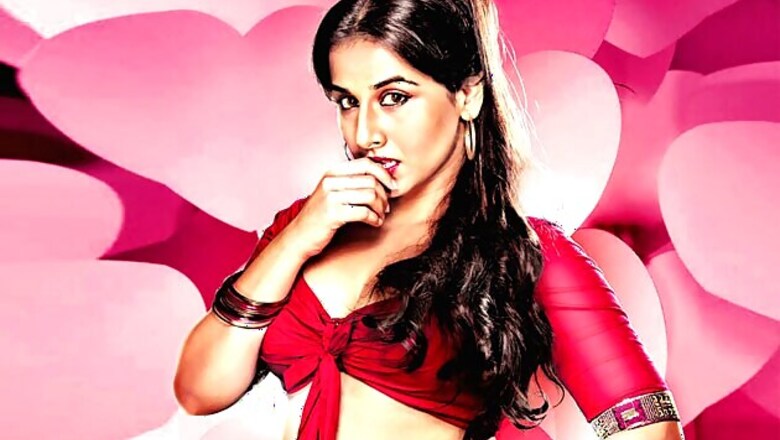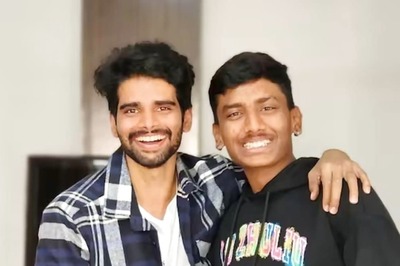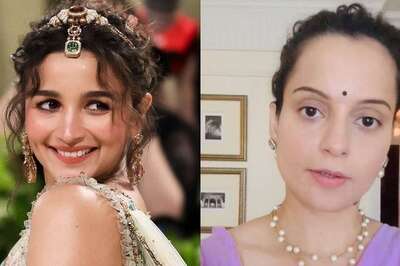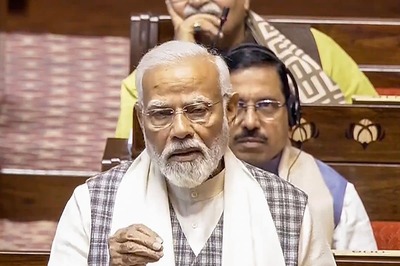
views
Mumbai: When Bollywood film-maker Kunal Deshmukh set out to make 'Jannat 2', a raunchy tale about arms dealing with plenty of swearing and bare skin, he ended up shooting two versions - one for cinema audiences, and the other for television.
Deshmukh was not being extravagant. Like many Indian movie producers and TV broadcasters, he walked a tightrope of catering to the tastes of a rapidly modernising but largely conservative country, whose censors have scant tolerance for adult content.
Movie-makers like Deshmukh risk seeing their work chopped to pieces on a censor's editing floor, or banned from television altogether if it is deemed unsuitable for family viewing.
"I didn't want to take a chance. TV rights for movies are important revenue earners and I would like my movie to be shown at a prime-time slot," Deshmukh told Reuters.
"I would much rather spend some time and re-shoot certain scenes so that they are fit for TV."
The tussles over what is and what is not acceptable material reflect a wider debate about censorship in a country proud of its status as the world's largest democracy, but which has witnessed several controversies over free speech this year.
"It's ridiculous. You would think there would be some space for self-regulation, but this has become arbitrary," says Paritosh Joshi, a former member of the Indian Broadcasting Federation, an industry body that looks at content regulation.
In February, Information Technology Minister Kapil Sibal sought to calm fears of a China-style crackdown on companies like Google and Facebook after a court ordered two dozen firms to block material that could offend religious groups.
Regulating content is an unwieldy job in a country of 1.2 billion that has witnessed an explosion in its TV and media industry since the start of India's economic boom more than two decades ago. In that time, the country went from having two state-run channels to nearly 500 private ones.
India had 146 million TV-viewing households in 2011, more than the United States with 114 million, according to an estimate by the global information company Nielsen. TV penetration was at 61 per cent last year as compared to 98 per cent in China, according to consulting firm KPMG.
Only movies aired on TV are required to get a censor certificate. Broadcasters have a set of regulations that they have to follow.
Making content suitable for family audiences includes beeping out words such as "ass", commonly heard on American shows. The subtitles in India for such shows often swap an offensive word with a more palatable substitute - so "ass" could become "rear" or "behind".
Also on the black list are words such as "beef", as the cow is considered holy by India's Hindu majority, and "sucks".
Deshmukh isn't the only one to have struggled in India, home to the world's largest movie industry.
'The Dirty Picture', a film about the life of a 1980s South Indian soft-porn star, which won accolades from audiences and critics alike, was stopped hours before its television premiere in April after two court petitions objected to its content.
This was after the makers of the film were asked to make 59 cuts in the movie so that it could be rated U/A, India's version of a Parental Guidance rating, for television.
"Television is a much more mass medium than the movies, so we have to ensure that content is suitable. This is a huge country, you have to think of everyone," the country's censor board chief, Leela Samson, told Reuters.
Sitting in a cubicle in swanky glass-and-chrome office in Mumbai's bustling suburb of Malad, Eliza Johny is in charge of sanitising content for Sony Pix, part of a media group that is majority-owned by the movie studio Sony Pictures.
Her job involves watching two movies every day. She peers at the 14-inch television on her desk, watching Jennifer Aniston whisper sweet nothings to Aaron Eckhart in the 2009 romantic comedy 'Love Happens'.
She then checks the subtitles on her computer screen, making sure there are no objectionable scenes or words spoken. Then, she rewinds and watches the movie again.
It's a tedious process, but a necessary one.
"We reach more than 20 million people in India. There's a lot at stake. You cannot afford to offend anyone," Sunder Aaron, who heads Sony Pix, told Reuters.
India's Broadcast Content Complaint Council, set up to look at objectionable TV content, has received more than 4,500 complaints from viewers in less than a year since it was set up.
American shows like 'Sex and the City', 'Modern Family' and 'Californication' figure in the list of complaints, as do Indian TV shows like 'Roadies', which airs on MTV.
Tight regulations mean broadcasters like Aaron have to be careful what kind of content they pick for Indian audiences, disappointing a growing base of English-speaking viewers who want to watch content at the same time as US viewers do.
"We have picked shows like 'Boardwalk Empire' and 'True Blood' for India, but know that a show like 'Sopranos' would never work here because there would just be too many cuts," says Shruti Bajpai, Country Head of the TV network HBO.
Bajpai began airing the second season of HBO's acclaimed "Game of Thrones" series at the end of May, but admits that it is hardly the same version as shown in the United States.
"But in a country of a billion people, it's better to show the show than not at all", she said.



















Comments
0 comment